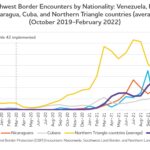Can DACA recipients travel on a cruise? Travels.edu.vn provides clear guidance on cruise travel for DACA recipients, outlining restrictions and permitted options to ensure compliance with travel regulations. Understanding the specifics can help DACA beneficiaries plan appropriate travel, including potential Hawaii cruises, domestic river cruises, and exploring permissible travel options, ensuring a worry-free vacation.
Table of Contents
- Understanding DACA and Travel Restrictions
- General Cruise Travel Limitations for DACA Recipients
- Closed-Loop Cruises and DACA: What You Need to Know
- Cruising to Hawaii: A Viable Option for DACA Travelers
- Alaska Cruises: Are They Possible with DACA Status?
- The Bahamas and DACA: Navigating Travel Regulations
- Caribbean Cruises and DACA: What to Consider
- Mexico Cruises: Guidelines for DACA Recipients
- Alternative Cruise Options for DACA Recipients
- Planning Your Trip with Travels.edu.vn
- FAQs About DACA and Cruise Travel
1. Understanding DACA and Travel Restrictions
The Deferred Action for Childhood Arrivals (DACA) program grants certain individuals who entered the United States as children protection from deportation and eligibility for work permits. While DACA provides significant benefits, it also imposes travel restrictions. These restrictions primarily stem from the fact that DACA recipients are not U.S. citizens or lawful permanent residents. Understanding these limitations is crucial for anyone under DACA considering cruise travel.
The U.S. Citizenship and Immigration Services (USCIS) has specific guidelines regarding travel for DACA recipients. Generally, any travel outside the United States requires advance permission, known as Advance Parole. However, Advance Parole is only granted for specific reasons: humanitarian, educational, or employment purposes. Recreational travel, such as a cruise, typically does not qualify.
The core challenge lies in the definition of “leaving the United States.” Even if a cruise ship merely touches a foreign port, it is considered leaving the U.S. legally, which can jeopardize DACA status without proper authorization. This makes planning any cruise that involves international waters or ports complex for DACA recipients.
For accurate and up-to-date information, always refer to the official USCIS website or consult with an immigration attorney. Travels.edu.vn aims to provide clear and accessible guidance, but official sources should be the final authority on legal matters.
2. General Cruise Travel Limitations for DACA Recipients
Navigating cruise travel as a DACA recipient requires a thorough understanding of the restrictions in place. The primary limitation is that DACA recipients generally cannot take cruises that leave the United States. This includes cruises that visit any foreign port, even if the individual remains on the ship. The act of entering international waters is considered leaving the U.S. without authorization, which can have severe consequences.
One of the critical issues is the absence of Advance Parole for recreational purposes. Advance Parole allows DACA recipients to travel outside the U.S. for humanitarian, educational, or employment reasons and return legally. Since cruises are typically considered recreational, obtaining Advance Parole for this purpose is not feasible.
According to the USCIS, unauthorized travel outside the U.S. can interrupt the continuous residence requirement for DACA, potentially leading to the termination of DACA status. This makes it essential for DACA recipients to exercise caution when planning any trip that might cross international borders.
However, some exceptions and alternatives exist, such as cruises that remain entirely within the U.S., like certain Hawaiian cruises or river cruises. These options will be discussed in more detail in subsequent sections.
For DACA recipients considering cruise travel, it is crucial to verify the itinerary and ensure that the cruise ship does not dock at any foreign port. Additionally, consulting with an immigration attorney is highly recommended to fully understand the potential risks and ensure compliance with all applicable laws.
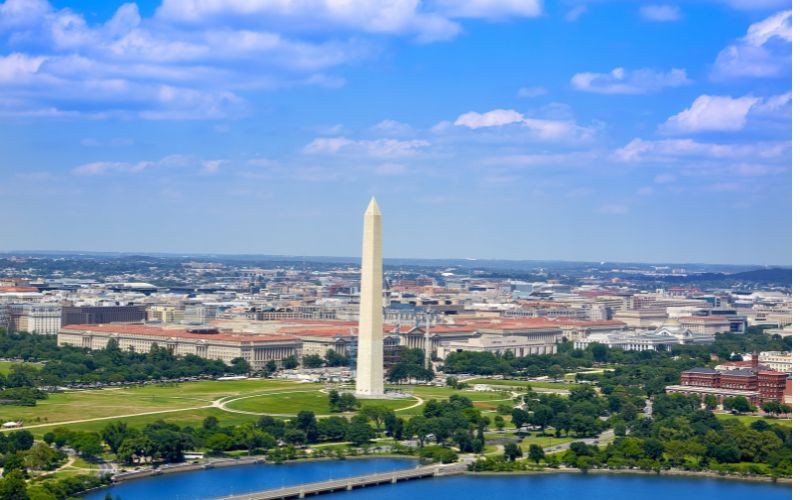 DACA recipients on US cruise
DACA recipients on US cruise
3. Closed-Loop Cruises and DACA: What You Need to Know
Closed-loop cruises are those that start and end in the same U.S. port and often visit destinations in the Caribbean, Mexico, or the Bahamas. While these cruises are convenient for U.S. citizens who may not have a passport, they pose a significant risk for DACA recipients.
DACA recipients are generally not permitted to travel on closed-loop cruises. Even if a DACA recipient does not disembark in a foreign port, the act of being in international waters is considered leaving the U.S. This can lead to complications upon return, including potential denial of re-entry and jeopardization of DACA status.
U.S. citizens can typically board closed-loop cruises with proof of citizenship, such as a birth certificate, in lieu of a passport. However, DACA recipients do not have U.S. citizenship and must adhere to stricter travel regulations. Showing a DACA card or work permit is not sufficient for re-entry into the U.S. after a closed-loop cruise.
To reiterate, the key issue is whether the cruise leaves U.S. territory. If the cruise enters international waters or docks in a foreign port, it is considered a departure from the U.S.
Given these restrictions, DACA recipients should avoid booking closed-loop cruises that visit foreign destinations. Alternative options, such as cruises that remain exclusively within U.S. waters, are safer and will be explored in the following sections.
4. Cruising to Hawaii: A Viable Option for DACA Travelers
One of the few viable cruise options for DACA recipients is a cruise to Hawaii, provided that the cruise remains exclusively within the Hawaiian Islands and returns to a U.S. port without visiting any foreign destinations. The Pride of America, operated by Norwegian Cruise Line (NCL), is particularly well-suited for this purpose.
The Pride of America is U.S.-flagged and operates exclusively in Hawaii, offering itineraries that visit multiple Hawaiian islands without any international stops. This makes it a compliant option for DACA recipients who want to experience a cruise vacation without risking their legal status.
These cruises typically depart from Honolulu and visit islands such as Maui, Kauai, and the Big Island, offering a range of activities and excursions. Passengers can enjoy the stunning landscapes, beaches, and cultural experiences that Hawaii has to offer.
However, it’s important to note that Pride of America cruises tend to be more expensive than other NCL cruises. This is because the ship is U.S.-flagged and employs an all-American crew, which incurs higher operating costs. Despite the higher price, it remains one of the few ocean cruise options available to DACA recipients.
When booking a cruise to Hawaii, DACA recipients should confirm that the itinerary does not include any stops outside of the Hawaiian Islands. It is also advisable to carry all necessary documentation, including the DACA approval notice and a valid form of identification.
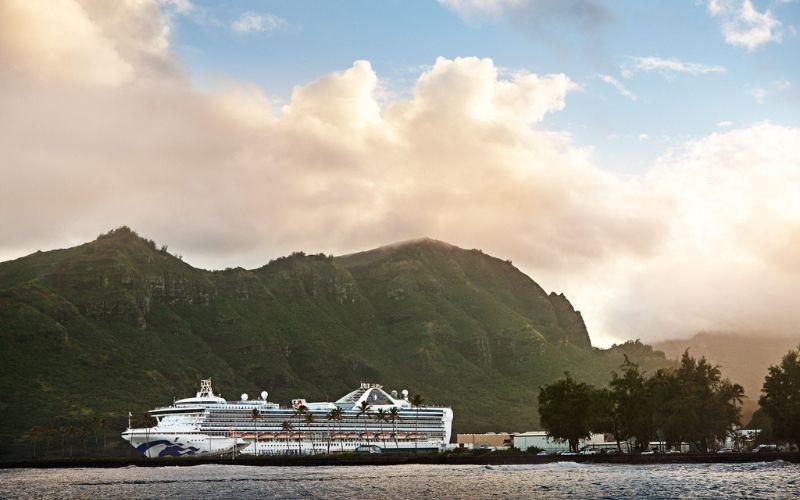 Cruise to Hawaii
Cruise to Hawaii
5. Alaska Cruises: Are They Possible with DACA Status?
Cruises to Alaska present a more complex situation for DACA recipients. Most Alaskan cruises include stops in Canadian ports, such as Vancouver or Victoria, which means the cruise leaves U.S. territory. As previously discussed, this can create significant issues for DACA recipients, potentially leading to denial of re-entry into the U.S.
Even if a DACA recipient were to find an Alaskan cruise that does not stop in Canada, there is still a risk. U.S. Customs and Border Protection (CBP) officers could interpret the voyage as international travel, even if technically the ship only visits U.S. ports. This discretionary power held by CBP officers can result in unexpected complications.
Flying to Alaska is generally permissible for DACA recipients, as long as the flight originates and terminates within the United States. However, even this carries some risk, as CBP officers at the airport could question the purpose of the trip and potentially create issues upon return.
Given these uncertainties, it is generally not advisable for DACA recipients to take cruises to Alaska, unless they can definitively confirm that the cruise remains entirely within U.S. waters and ports, and even then, the risk remains.
6. The Bahamas and DACA: Navigating Travel Regulations
Cruises to the Bahamas are a popular vacation choice, but they are not an option for DACA recipients. The Bahamas is an independent country, and any cruise that visits its ports is considered international travel. As previously emphasized, DACA recipients must avoid any unauthorized travel outside the U.S. to maintain their status.
Traveling to the Bahamas without Advance Parole is considered a violation of DACA regulations. DACA recipients who attempt to enter the Bahamas could be denied entry and, more significantly, risk being denied re-entry into the United States.
The USCIS is clear on this matter: DACA recipients must remain within the U.S. to maintain their continuous residence status, which is a key requirement for DACA eligibility. Traveling to the Bahamas would break this continuous residence and could lead to the termination of DACA status.
There are no exceptions to this rule for recreational travel. Even if a DACA recipient has a valid work permit and DACA approval, they cannot travel to the Bahamas for vacation purposes.
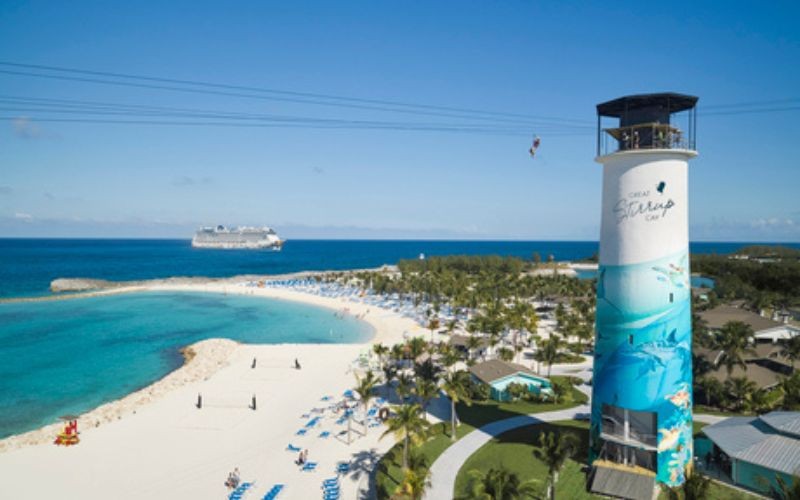 Cruise to Bahamas
Cruise to Bahamas
7. Caribbean Cruises and DACA: What to Consider
Similar to cruises to the Bahamas, cruises to the Caribbean are off-limits for DACA recipients. The Caribbean consists of numerous independent nations and territories, and any cruise that visits these destinations is considered international travel.
DACA recipients cannot apply for Advance Parole for recreational travel, such as a Caribbean cruise. Advance Parole is only granted for humanitarian, educational, or employment reasons, none of which apply to vacation cruises.
Attempting to travel to the Caribbean without Advance Parole can have severe consequences. DACA recipients could be denied entry into the Caribbean nations and, more critically, risk being denied re-entry into the United States. This can lead to the termination of DACA status and potential deportation.
The risks associated with Caribbean cruises far outweigh any potential benefits for DACA recipients. It is essential to adhere to USCIS guidelines and avoid any travel that could jeopardize DACA status.
8. Mexico Cruises: Guidelines for DACA Recipients
Cruises to Mexico are also not permitted for DACA recipients. Mexico is a foreign country, and any cruise that includes Mexican ports is considered international travel. This type of travel requires Advance Parole, which is not available for recreational purposes.
The USCIS considers unauthorized travel to Mexico as a violation of DACA regulations. DACA recipients who travel to Mexico without Advance Parole risk being treated as if they have “self-deported,” meaning they could be considered illegal immigrants upon their return and denied entry into the U.S.
This is a serious matter that can have long-term consequences for DACA recipients. It is crucial to avoid any travel to Mexico, including cruises, to protect DACA status and avoid potential deportation.
DACA recipients should always prioritize compliance with USCIS regulations and seek legal advice if they have any questions about travel restrictions. TRAVELS.EDU.VN is here to provide guidelines, but cannot give legal advice.
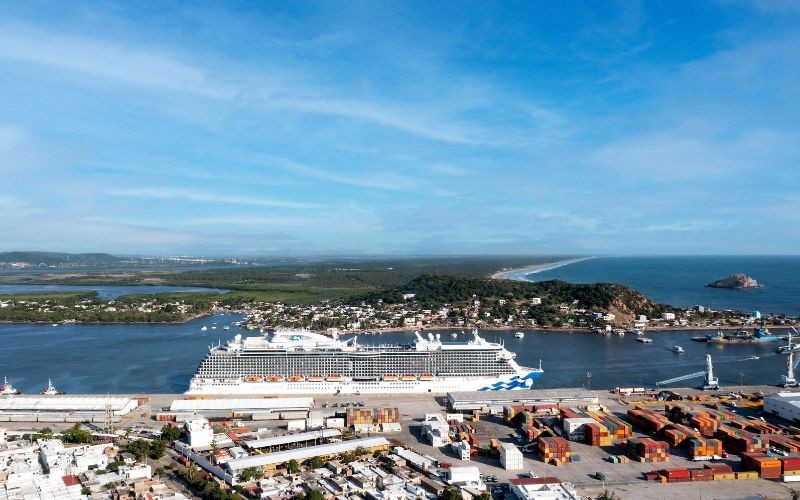 Majestic Princess in Mazatlan Mexico
Majestic Princess in Mazatlan Mexico
9. Alternative Cruise Options for DACA Recipients
While international cruises are generally not an option for DACA recipients, some alternatives exist that allow them to enjoy a cruise vacation without risking their legal status. These include:
- Hawaiian Cruises (Pride of America): As previously discussed, the Pride of America offers cruises that remain exclusively within the Hawaiian Islands and return to a U.S. port.
- U.S. River Cruises: River cruises that operate entirely within the United States are a viable option. These cruises typically explore rivers such as the Mississippi, Columbia, or Hudson, offering a unique perspective on American history and culture.
- Great Lakes Cruises: Cruises on the Great Lakes are another option, as they remain within U.S. territory and offer scenic views of the region.
These alternative cruises provide a way for DACA recipients to experience the joy of cruising while remaining in compliance with travel regulations. It is essential to verify that any cruise being considered stays entirely within U.S. waters and ports.
10. Planning Your Trip with TRAVELS.EDU.VN
Planning a trip as a DACA recipient requires careful consideration and attention to detail. TRAVELS.EDU.VN is here to help you navigate the process and find suitable travel options that comply with all applicable regulations.
When planning your trip, consider the following:
- Verify the Itinerary: Ensure that the cruise or tour remains entirely within the United States and does not include any stops in foreign ports.
- Consult with an Immigration Attorney: Seek legal advice to fully understand the potential risks and ensure compliance with all applicable laws.
- Gather Necessary Documentation: Carry all necessary documents, including your DACA approval notice, employment authorization document (EAD), and a valid form of identification.
- Stay Informed: Keep up-to-date with any changes to DACA regulations or travel guidelines issued by the USCIS.
TRAVELS.EDU.VN offers a range of resources to help you plan your trip, including destination guides, travel tips, and information on cruises and tours that are suitable for DACA recipients.
We understand the challenges that DACA recipients face when planning travel, and we are committed to providing accurate and reliable information to help you make informed decisions. Let us help you create a memorable and worry-free travel experience.
Ready to plan your DACA-compliant getaway? Contact TRAVELS.EDU.VN today at +1 (707) 257-5400 or visit our website TRAVELS.EDU.VN for personalized assistance. Our team is dedicated to helping you explore the beauty of Napa Valley and beyond, safely and legally. Visit us at 123 Main St, Napa, CA 94559, United States.
11. FAQs About DACA and Cruise Travel
1. Can DACA recipients go on a cruise?
Generally, DACA recipients cannot go on cruises that leave the United States. The exception is cruises that remain entirely within U.S. territory, such as some Hawaiian cruises.
2. What is Advance Parole, and can it be used for cruises?
Advance Parole is permission for DACA recipients to travel outside the U.S. for humanitarian, educational, or employment reasons. It cannot be used for recreational travel like cruises.
3. Can DACA recipients go on closed-loop cruises?
No, DACA recipients should not go on closed-loop cruises, as these cruises leave U.S. territory and can jeopardize their DACA status.
4. Is it safe for DACA recipients to travel to Hawaii?
Yes, DACA recipients can travel to Hawaii on cruises that remain exclusively within the Hawaiian Islands and return to a U.S. port, such as those offered by the Pride of America.
5. Can DACA recipients take a cruise to Alaska?
Most Alaska cruises include stops in Canada, making them unsuitable for DACA recipients. Even cruises that only visit U.S. ports carry some risk.
6. What are the risks of traveling outside the U.S. for DACA recipients?
Traveling outside the U.S. without Advance Parole can lead to denial of re-entry, termination of DACA status, and potential deportation.
7. Can DACA recipients travel to the Bahamas or Caribbean?
No, cruises to the Bahamas and Caribbean are considered international travel and are not permitted for DACA recipients without Advance Parole.
8. What alternative cruise options are available for DACA recipients?
Alternative options include U.S. river cruises and cruises on the Great Lakes, which remain entirely within U.S. territory.
9. How can TRAVELS.EDU.VN help DACA recipients plan their travel?
travels.edu.vn can help DACA recipients find suitable travel options that comply with all applicable regulations, offering destination guides, travel tips, and information on cruises and tours that are safe and compliant.
10. Where can DACA recipients find more information about travel restrictions?
DACA recipients can find more information on the USCIS website or consult with an immigration attorney for legal advice.
This comprehensive guide is designed to provide DACA recipients with the information they need to make informed decisions about cruise travel. By understanding the restrictions and exploring the available alternatives, DACA recipients can plan safe and enjoyable vacations while protecting their legal status. Remember to consult with immigration legal experts for specific concerns.
The Explorer Cruise ship, a symbol of leisure travel, highlights the importance of understanding travel restrictions for DACA recipients.
